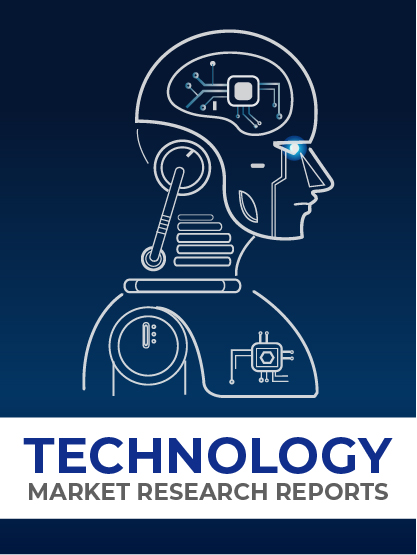
-
Report ID 138122 -
Published Date June 2023 -
Delivery Format PDF/PPT/Word -
Editor's Rating
-
Report Details
Market Overview
Generative AI in Automotive Market refers to the application of artificial intelligence techniques within the automotive sector. This involves using AI algorithms and models to optimize various automotive processes ranging from design, production, autonomous driving, predictive maintenance and customer experience. Market growth is being spurred on by growing consumer interest in smart connected cars as well as advancements in AI technologies that make these vehicles even safer than before – creating opportunities in this market segment.
Generative AI in Automotive Market Size Is Projected to Reach USD 2105 Million by 2032 from USD 271 Million in 2022 with growth rates estimated between 23.4% by 2032
This growth will be driven by the increasing use of generative AI in a variety of automotive applications, such as:
- Autonomous driving: Generative AI can be used to create realistic simulations of driving scenarios, which can be used to train autonomous vehicles.
- Vehicle design: Generative AI can be used to create new vehicle designs that are more aerodynamic, fuel-efficient, and safe.
- Manufacturing: Generative AI can be used to optimize the manufacturing process, leading to shorter production times and lower costs.
- Customer service: Generative AI can be used to create personalized customer experiences, such as recommending maintenance services or providing roadside assistance.
Key Takeaways
- Its Generative AI in Automotive is revolutionizing the industry by using AI algorithms to enhance vehicle design, manufacturing processes and customer experiences.
- AI can open doors for autonomous driving, predictive maintenance, personalized driving experiences and smart vehicle connectivity solutions. The market presents ample opportunity for companies that want to develop these types of AI solutions for autonomous driving, predictive maintenance and vehicle connectivity purposes.
- Generative AI plays an integral part in many areas, from vehicle design optimization and simulation to computer vision-enabled object recognition, to voice-enabled interactions.
- Generative AI integration into automotive provides increased safety, efficiency and customized experiences for drivers and passengers.
- Ethical considerations, data privacy concerns and regulatory compliance must all be factored into Generative AI use for automobile manufacturing applications responsibly.
Market Dynamics
Drivers
The growth of the generative AI market in automotive is being driven by a number of factors, including:
- The increasing demand for autonomous vehicles.
- The increasing complexity of vehicle design.
- The need to reduce manufacturing costs.
- The increasing availability of data.
- The decreasing cost of computing power.
Restraints
The growth of the generative AI market in automotive is being restrained by a number of factors, including:
- The high cost of developing and deploying generative AI solutions.
- The lack of skilled personnel with the knowledge and experience to use generative AI in automotive.
- The regulatory challenges associated with the use of generative AI in automotive.
Opportunities
The generative AI market in automotive offers a number of opportunities, including:
- The development of new autonomous vehicle technologies.
- The creation of new vehicle designs that are more aerodynamic, fuel-efficient, and safe.
- The optimization of the manufacturing process, leading to shorter production times and lower costs.
- The provision of personalized customer experiences.
Challenges
The generative AI market in automotive faces a number of challenges, including:
- The high cost of developing and deploying generative AI solutions.
- The lack of skilled personnel with the knowledge and experience to use generative AI in automotive.
- The regulatory challenges associated with the use of generative AI in automotive.
Top Key Players in Generative AI in Automotive Market
- BMW AG
- AUDI AG
- Intel Corporation
- Tesla Inc
- Uber Technologies
- Volvo Car Corporation
- Honda Motors
- Ford Motor Company
- NVIDIA Corporation
- Tencent
- Microsoft
- Other Key Players
Market Segments
Based on Deployment Mode
- On-Premise
- Cloud-Based
Based on Application
- Advanced Driver Assistance Systems (ADAS)
- Connected Car Technologies
- Autonomous Driving Technologies
- Human-Machine Interfaces (HMIs)
- Other Applications
Key Regions and Countries
North America
- US
- Canada
- Mexico
Western Europe
- Germany
- France
- The UK
- Spain
- Italy
- Portugal
- Ireland
- Austria
- Switzerland
- Benelux
- Nordic
- Rest of Western Europe
Eastern Europe
- Russia
- Poland
- The Czech Republic
- Greece
- Rest of Eastern Europe
APAC
- China
- Japan
- South Korea
- India
- Australia & New Zealand
- Indonesia
- Malaysia
- Philippines
- Singapore
- Thailand
- Vietnam
- Rest of APAC
Latin America
- Brazil
- Colombia
- Chile
- Argentina
- Costa Rica
- Rest of Latin America
Middle East & Africa
- Algeria
- Egypt
- Israel
- Kuwait
- Nigeria
- Saudi Arabia
- South Africa
- Turkey
- United Arab Emirates
- Rest of MEA
FAQs
1. What is generative AI?
Generative AI is a type of artificial intelligence that can be used to create new data. This data can be in the form of text, images, or code. Generative AI is used in a variety of applications, including automotive, healthcare, and finance.
2. How can generative AI be used in automotive?
Generative AI can be used in automotive to improve the efficiency of the automotive industry in a number of ways, including:
- Reducing the time and cost of vehicle design
- Optimizing the manufacturing process
- Providing personalized customer experiences
3. What are the benefits of using generative AI in automotive?
The benefits of using generative AI in automotive include:
- Increased efficiency of the automotive industry
- Reduced time and cost of vehicle design
- Improved manufacturing process
- Personalized customer experiences
4. What are the challenges of using generative AI in automotive?
The challenges of using generative AI in automotive include:
- The high cost of developing and deploying generative AI solutions
- The lack of skilled personnel with the knowledge and experience to use generative AI in automotive
- The regulatory challenges associated with the use of generative AI in automotive
-
Table Of Content
Research Insights & Deliverables
 Development and Future Forecast
Development and Future Forecast Competitive benchmarking
Competitive benchmarking Company Revenue Statistics
Company Revenue Statistics Rising Regional Opportunities
Rising Regional Opportunities Technology Trends and Dynamics
Technology Trends and Dynamics Technology Assessment
Technology Assessment
-
Inquiry Before Buying
Research Insights & Deliverables
 Development and Future Forecast
Development and Future Forecast Competitive benchmarking
Competitive benchmarking Company Revenue Statistics
Company Revenue Statistics Rising Regional Opportunities
Rising Regional Opportunities Technology Trends and Dynamics
Technology Trends and Dynamics Technology Assessment
Technology Assessment
-
Request Sample
Research Insights & Deliverables
 Development and Future Forecast
Development and Future Forecast Competitive benchmarking
Competitive benchmarking Company Revenue Statistics
Company Revenue Statistics Rising Regional Opportunities
Rising Regional Opportunities Technology Trends and Dynamics
Technology Trends and Dynamics Technology Assessment
Technology Assessment














